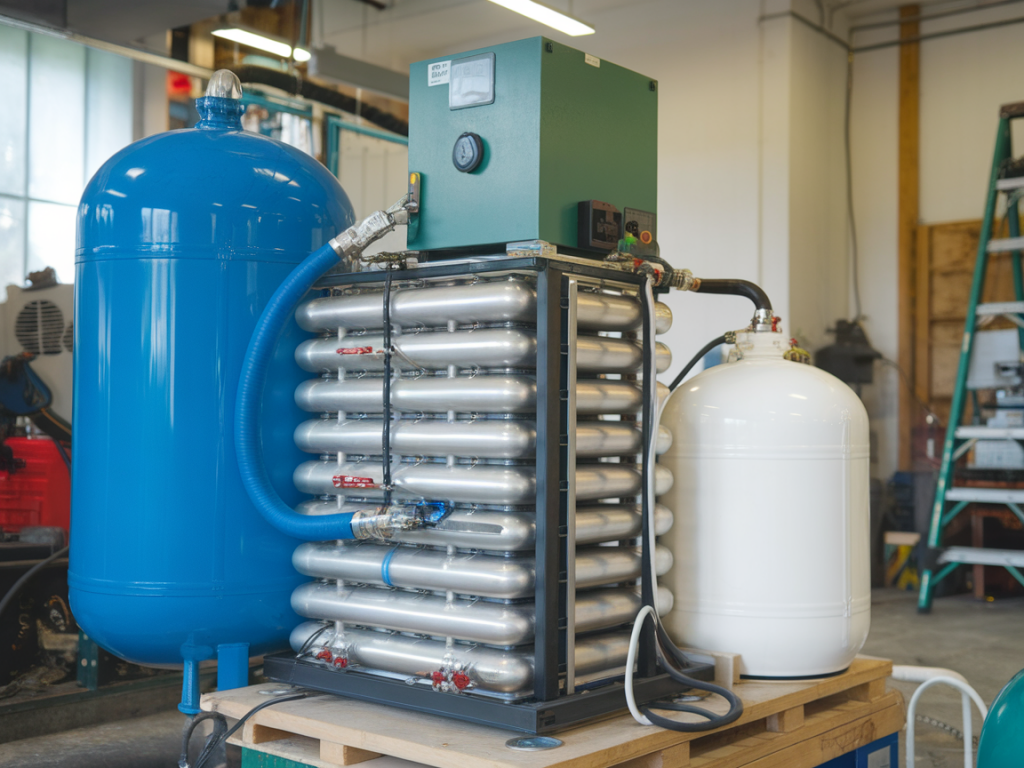
When people talk about the future of clean energy, hydrogen fuel cells often make their way into the conversation. For some, they represent a silver bullet solution to our dependence on fossil fuels, while for others, they're a bit of a mystery. So, what’s the truth? Are hydrogen fuel cells really the future of clean energy, or are they just another piece of the puzzle? Let’s dive in and explore this technology together.
Understanding Hydrogen Fuel Cells
First things first—what exactly is a hydrogen fuel cell? Simply put, it’s a device that converts chemical energy from hydrogen into electricity through a chemical reaction with oxygen. Unlike traditional combustion processes, in a hydrogen fuel cell, there’s no burning, so the only byproducts are water and heat. That’s right—no greenhouse gases, no particulates, and no nasty emissions.
In theory, this sounds amazing. An energy source that’s clean, efficient, and abundant—what’s not to like? However, as is often the case in the world of energy, the devil is in the details. To truly evaluate hydrogen fuel cells, we need to consider how the hydrogen is produced, stored, and used.
The Production Puzzle
While hydrogen is the most abundant element in the universe, it doesn’t exist freely on Earth in a pure form—it has to be separated from compounds like water (H2O) or hydrocarbons. This separation process is energy-intensive, and how that energy is sourced makes a huge difference in how “clean” hydrogen fuel cells actually are.
Currently, the majority of hydrogen is produced through a method called steam methane reforming (SMR). Unfortunately, this process relies heavily on natural gas and releases significant amounts of carbon dioxide, undermining the environmental benefits of hydrogen fuel cells. This is what’s known as “grey hydrogen.”
Then there’s “blue hydrogen,” where the carbon dioxide emissions are captured and stored using carbon capture technologies. While this is an improvement, it’s still not a perfect solution. The real game-changer would be “green hydrogen,” produced through electrolysis powered by renewable energy like wind or solar. This method is completely emissions-free, but it’s also more expensive and less widespread—something holding back its adoption.
The Storage and Transportation Challenges
Hydrogen is incredibly light, which makes it challenging to store and transport efficiently. It needs to be compressed at extremely high pressures or liquefied at very low temperatures, both of which require significant energy and specialized infrastructure.
Moreover, hydrogen is highly flammable, raising safety concerns during storage and transit. Companies like Air Liquide and Nel Hydrogen are actively working on innovative storage solutions, but the infrastructure for hydrogen isn’t as developed as it is for conventional fuels or even electric vehicle chargers.
In fact, creating a robust hydrogen infrastructure will take considerable investment and international cooperation. While countries like Japan and Germany are leading the charge, other nations are still hesitant to dive fully into hydrogen due to cost and scalability concerns.
Applications of Hydrogen Fuel Cells
The most exciting thing about hydrogen fuel cells is their versatility. Unlike batteries, which store energy, fuel cells generate electricity on demand as long as they have a supply of hydrogen. Let’s explore some of their key applications:
- Transportation: Hydrogen fuel cell vehicles (FCEVs) like the Toyota Mirai and Hyundai Nexo offer some advantages over battery electric vehicles (BEVs). Refueling a hydrogen car takes just a few minutes, compared to hours of charging for a BEV, and they have a longer range. However, a lack of refueling infrastructure remains a major barrier to widespread adoption.
- Heavy Industry: Hydrogen fuel cells are seen as a promising solution for decarbonizing industries that are hard to electrify, such as steel production, long-haul trucking, and shipping. Companies like Nikola and Ballard Power Systems are leading the charge in this space.
- Energy Storage: Hydrogen can act as a medium for storing excess renewable energy. When solar or wind farms produce more electricity than the grid needs, that energy can be used to produce hydrogen, which can then be stored and converted back to electricity when needed. This could be a major breakthrough for balancing the intermittency of renewables.
Debunking Myths
One of the biggest misconceptions about hydrogen fuel cells is that they’re in direct competition with battery technology. In reality, these technologies are complementary. While batteries excel in small-scale applications like personal cars or home energy systems, fuel cells shine in areas where batteries fall short, such as long-range transportation or industrial processes.
Another myth is that hydrogen is prohibitively dangerous. While it’s true that hydrogen is flammable, so is gasoline. Modern advancements in storage technology and safety protocols make using hydrogen as safe as any other fuel.
The Road Ahead
So, are hydrogen fuel cells the future of clean energy? The honest answer is—it depends. They have the potential to play a transformative role, especially in areas where other clean energy solutions fall short. But for hydrogen to become a major player, we need significant advancements in green hydrogen production, cost reduction, and infrastructure development.
The good news is that momentum is building. Governments and private investors around the world are recognizing the potential of hydrogen. With initiatives like the European Union’s Hydrogen Strategy and significant funding flowing into R&D, the hydrogen economy is starting to take shape.
Personally, while I’m excited about the possibilities, I’m also cautious. The hype around hydrogen should not distract from other critical clean energy efforts like expanding wind, solar, and energy efficiency measures. In my view, hydrogen fuel cells represent one piece of the complex puzzle that is our clean energy future—a piece that can work in harmony with other technologies to help us achieve net-zero emissions.
What do you think? Are hydrogen fuel cells worth the hype, or are we overestimating their potential? Join the conversation and let’s explore the possibilities together!

